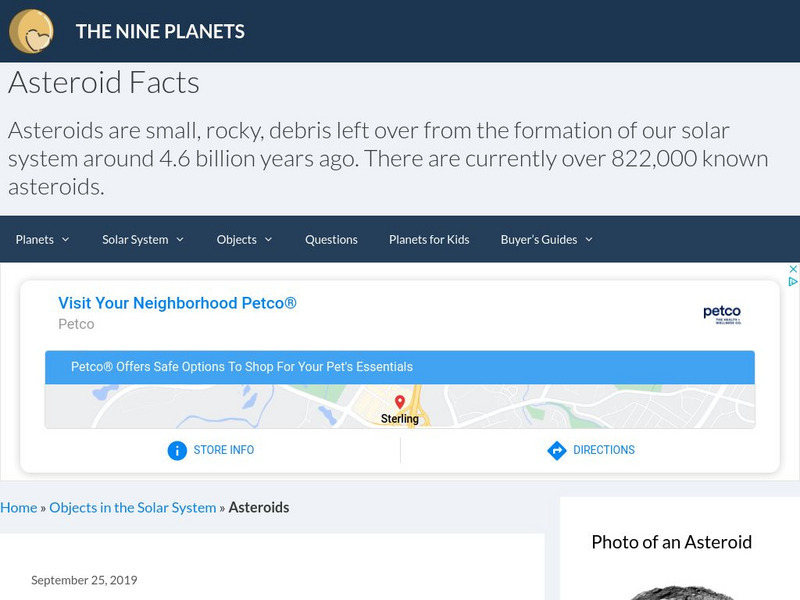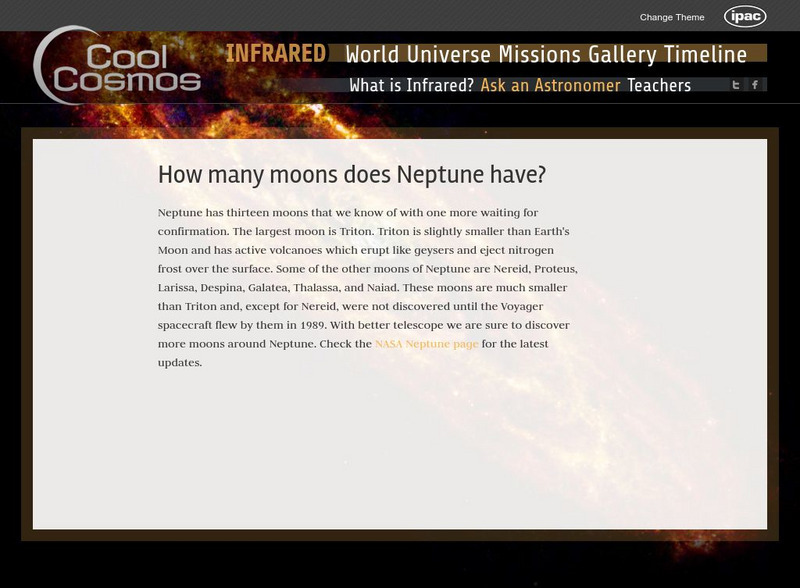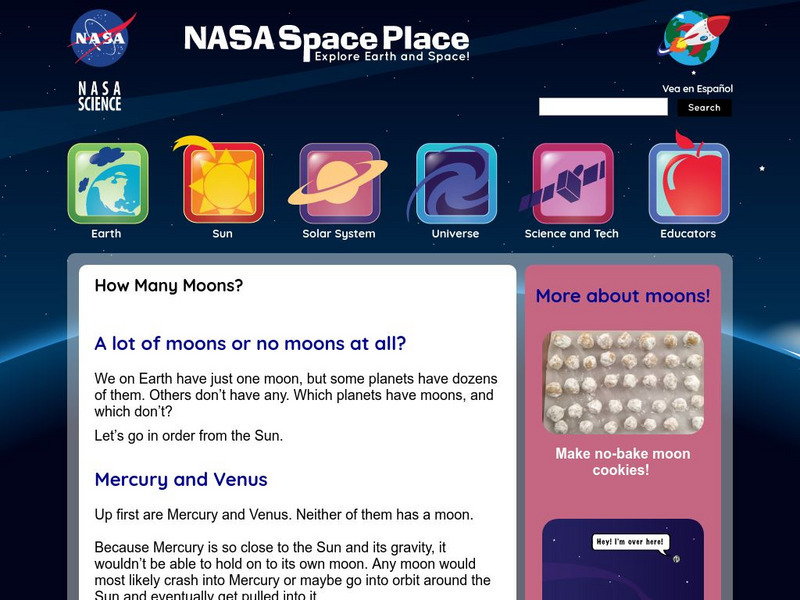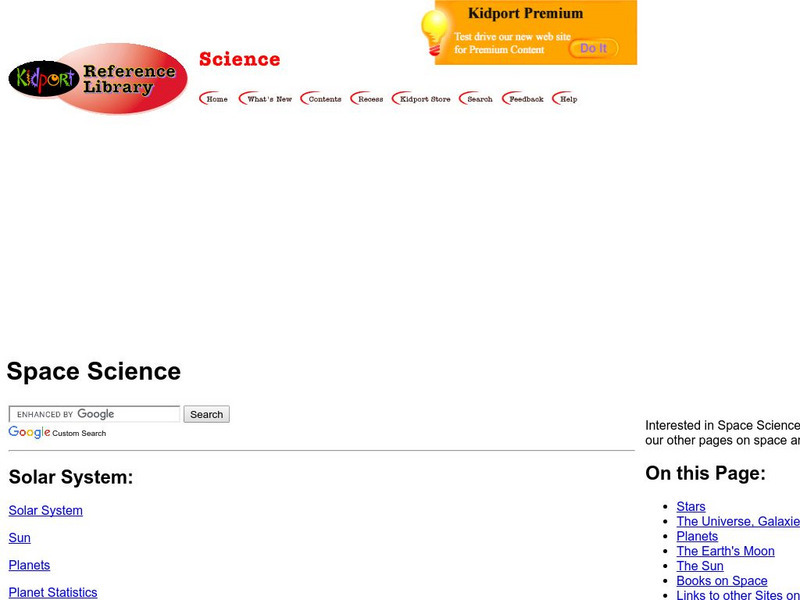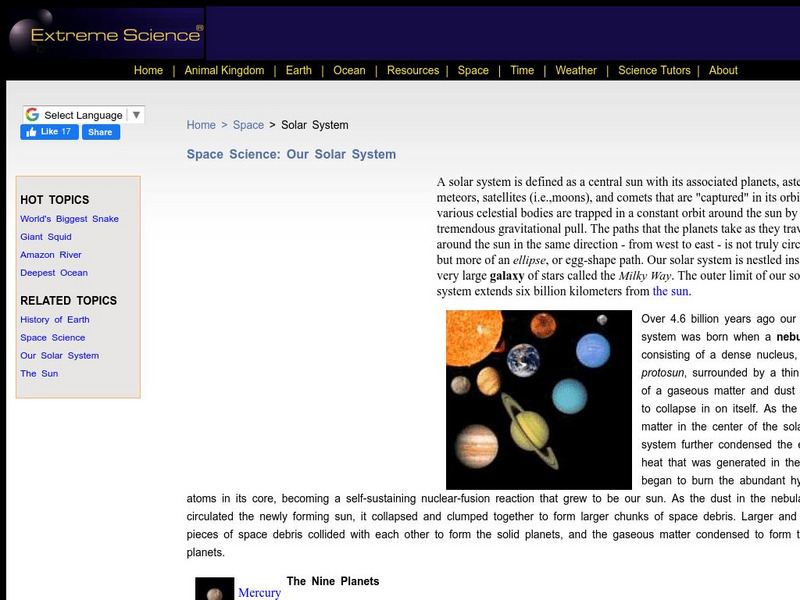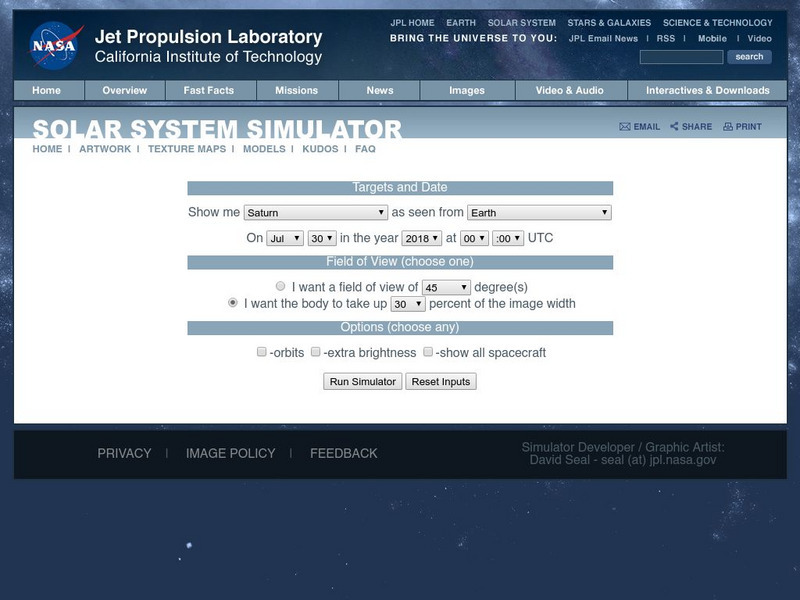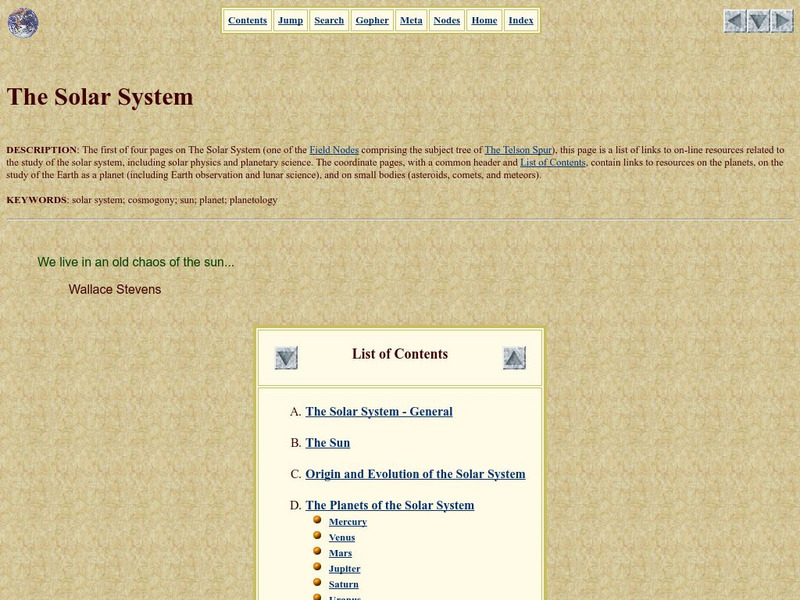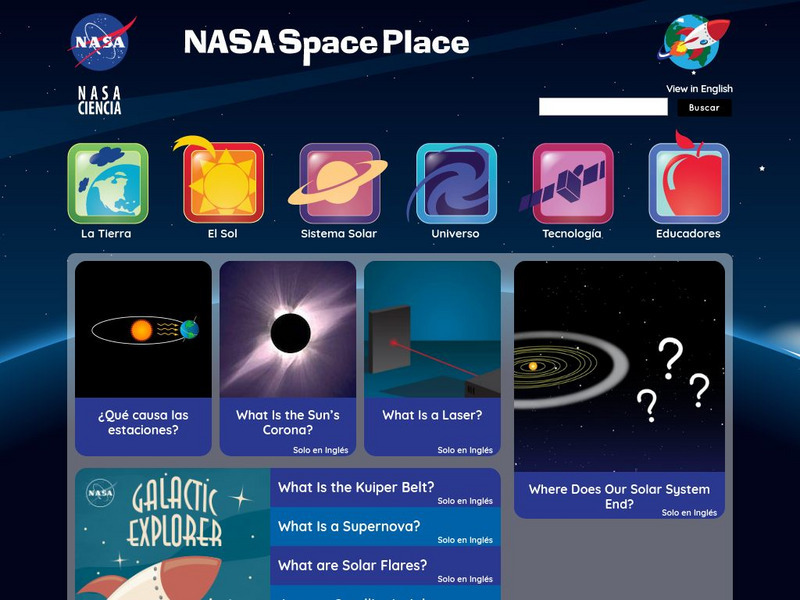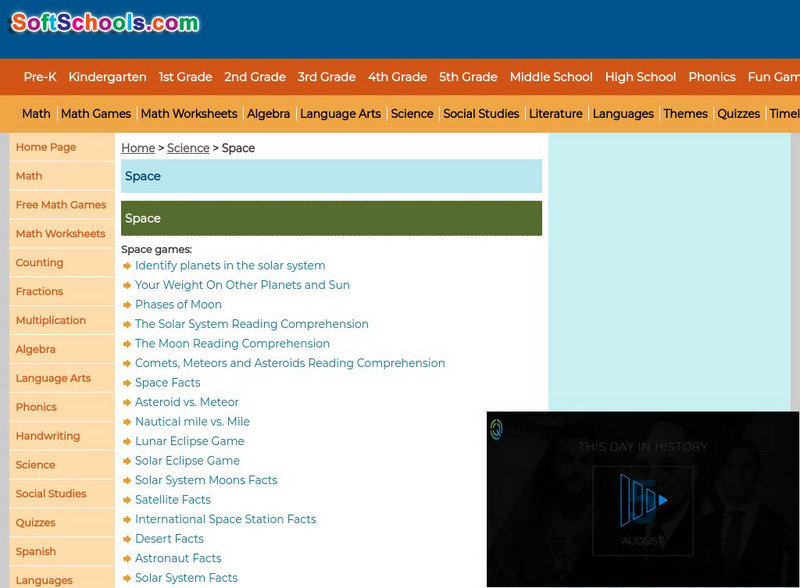Nine Planets
The Nine Planets: Asteroids
A plethora of information about Asteroids. This site provides lots of in-text links to information, pictures of asteroids, a table full of information about asteroids, as well as links to more information about asteroids.
Curated OER
Nasa: Welcome to the Planets Neptune
NASA offers a photo gallery of Neptune images. Each image includes a detailed caption describing what the image is of, and the captions are also available in streaming audio.
Curated OER
Nasa: Welcome to the Planets Neptune
NASA offers a photo gallery of Neptune images. Each image includes a detailed caption describing what the image is of, and the captions are also available in streaming audio.
Curated OER
Nasa: Welcome to the Planets Neptune
NASA offers a photo gallery of Neptune images. Each image includes a detailed caption describing what the image is of, and the captions are also available in streaming audio.
California Institute of Technology
Cal Tech: Cool Cosmos: Ask an Astronomer: How Many Moons Does Neptune Have?
Resource provides a brief answer to this question.
NASA
Nasa Space Science Data Archive: Neptunian Rings Fact Sheet
A data table of nearly everything known about the ring system of Neptune. The resource also includes an image of the rings of Neptune that can be enlarged.
Kidport
Kidport: Space Science
This complete resource will help students to improve their understand of space exploration. Includes images of the universe, galaxies, stars and planets.
A&E Television
History.com: The Space Race: Interactive Universe
A virtual journey through space offers photos and facts about Earth and its neighboring planets, comets, other celestial bodies of the Solar System, and the Milky Way and Andromeda galaxies.
Georgia Department of Education
Ga Virtual Learning: Our Solar System
This interactive tutorial will take students on a tour of our solar system. Students begin near the Sun with the really hot planets of Mercury and Venus. They will learn about Mars, probably the first planet that humans will visit. Next...
NASA
Nasa: Image Science Center: Ask the Space Scientist
A NASA scientist, Dr. Sten Odenwald, answers many students' questions. Topics include planets, galaxies, black holes, the origin of the universe, and common misconceptions about space.
NASA
Nasa: Solar System
This resource provides a general overview of all the planets in the solar system, as well as the sun, various comets and asteroids, the deep space network, and the latest solar system news.
ClassFlow
Class Flow: Space Solar System
[Free Registration/Login Required] In this lesson students will compare and contrast the attributes of star, star patterns and planets. Students will also have the opportunity to review facts about each planet and then complete various...
Extreme Science
Extreme Science: Space Science: Our Solar System
Read about our solar system and its formation over 4.6 billion years ago. Find out about the planets, asteroids, meteors, satellites, and comets. More in-depth planet background can be accessed through links.
NASA
Nasa: Surface Maps of the Solar System
Solar system surface map database. Includes maps of all solid planets and many moons. Maps of gas planets are either based on images taken by Voyager, or are fictitious maps including general storm systems.
Other
The Telson Spur: The Solar System
This is a list of links to online resources related to the study of the planets. It has a literary theme associated with the Lewis Carrol poem "The Hunting of the Snark" with many quotes from literature and science. Navigation tools...
Curated OER
Neptune
An outstanding collection of NASA space images, with images of all of the planets and many smaller bodies as well. Click on an image to read an explanation of it.
NASA
Nasa: Welcome to the Planets the Voyagers 1 & 2
This web page contains information and images on the pretesting, space simulation, and launch of Voyager I and Voyager II.
NASA
Nasa Space Place: El Space Place
NASA's space science site for kids - en Espanol. Features a wide range of activities, including games, projects, animations, and more. Also contains useful information on basic physics, chemistry, and other natural sciences, offering...
Space Telescope Science Institute
Hubble Site: Solar System Images
A listing of clickable images of objects in the Solar System from the Hubble telescope that includes the following: Venus, Mars, Jupiter, Jupiter's satellites, Saturn, Saturn's rings and satellites, Uranus, Uranus' rings and satellites,...
Soft Schools
Soft Schools: Space: Solar System Interactives
Identify the planets in our solar system and discover how much you weigh on another planet with these space interactives.
Johns Hopkins University
New Horizons Website
This site from the Solar System Exploration section of NASA provides an overview of the space mission to Pluto, Charon, and the fringes of our Solar System. It describes the Kuiper Belt, and the objects involved with it, provided links...
Other
The Apollo Society: The Solar System
Contains a small set of images of solar system objects and a series of links to information about all solar system objects. Solar System Tours link to excellent image collections.
